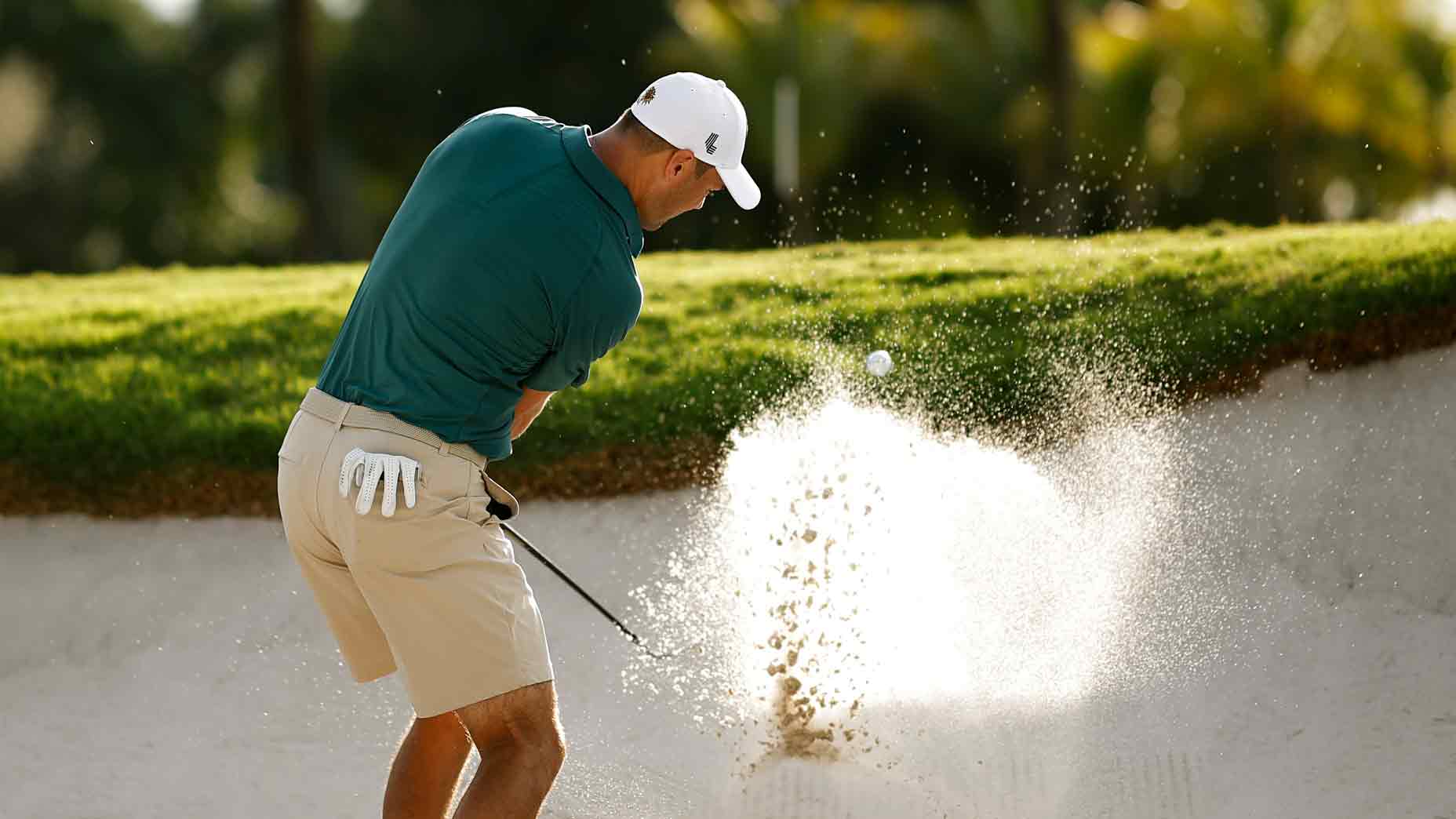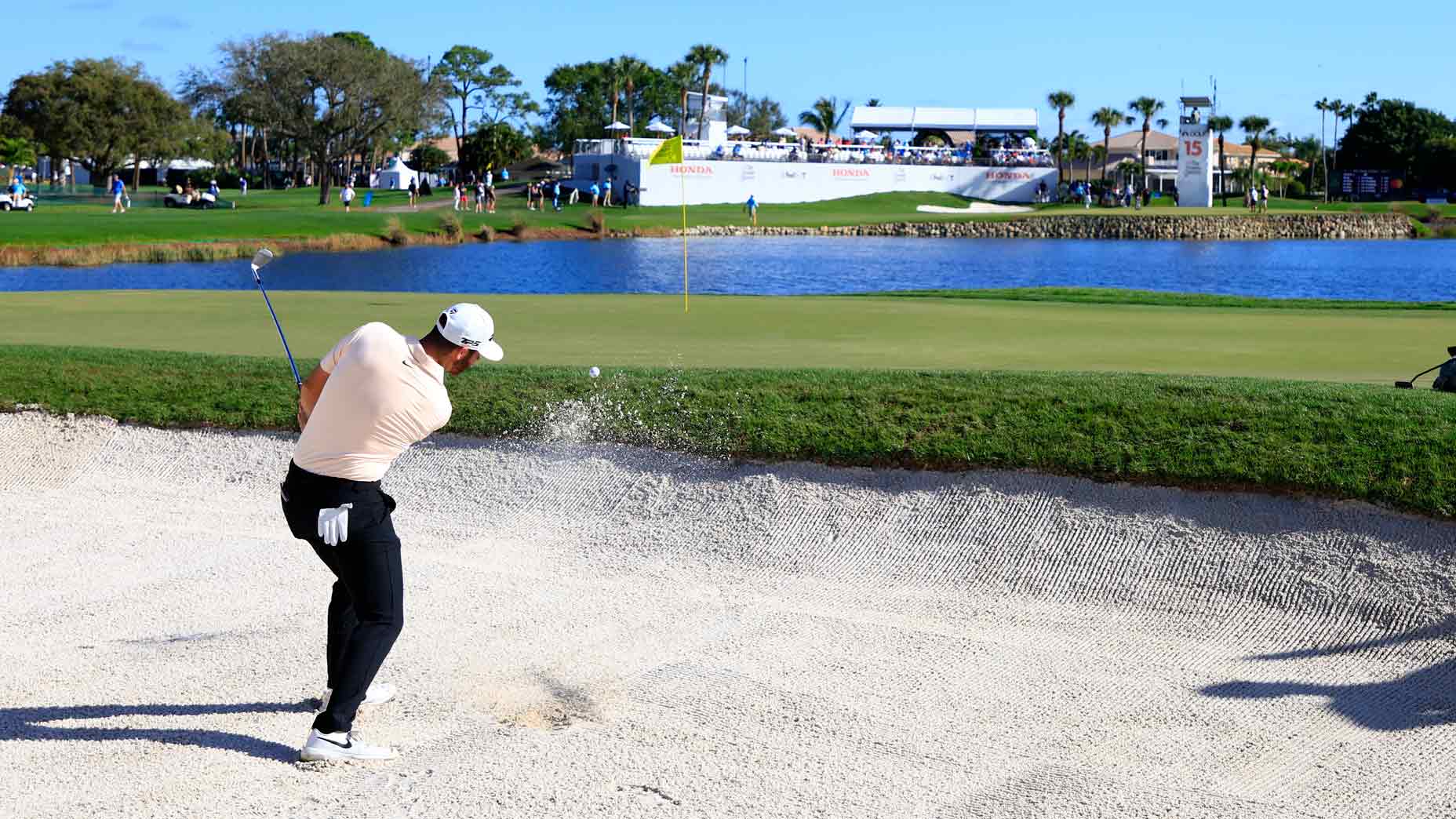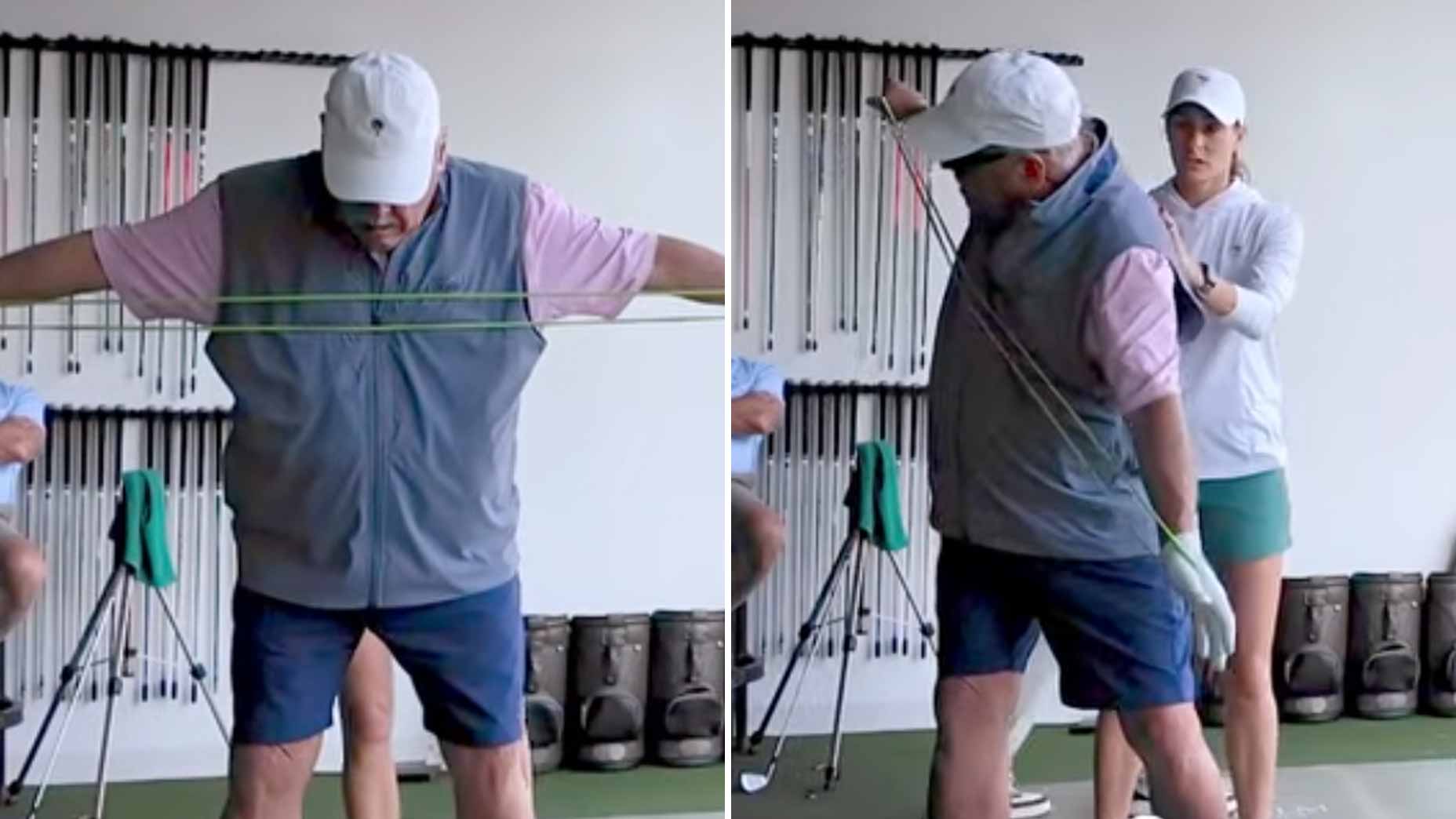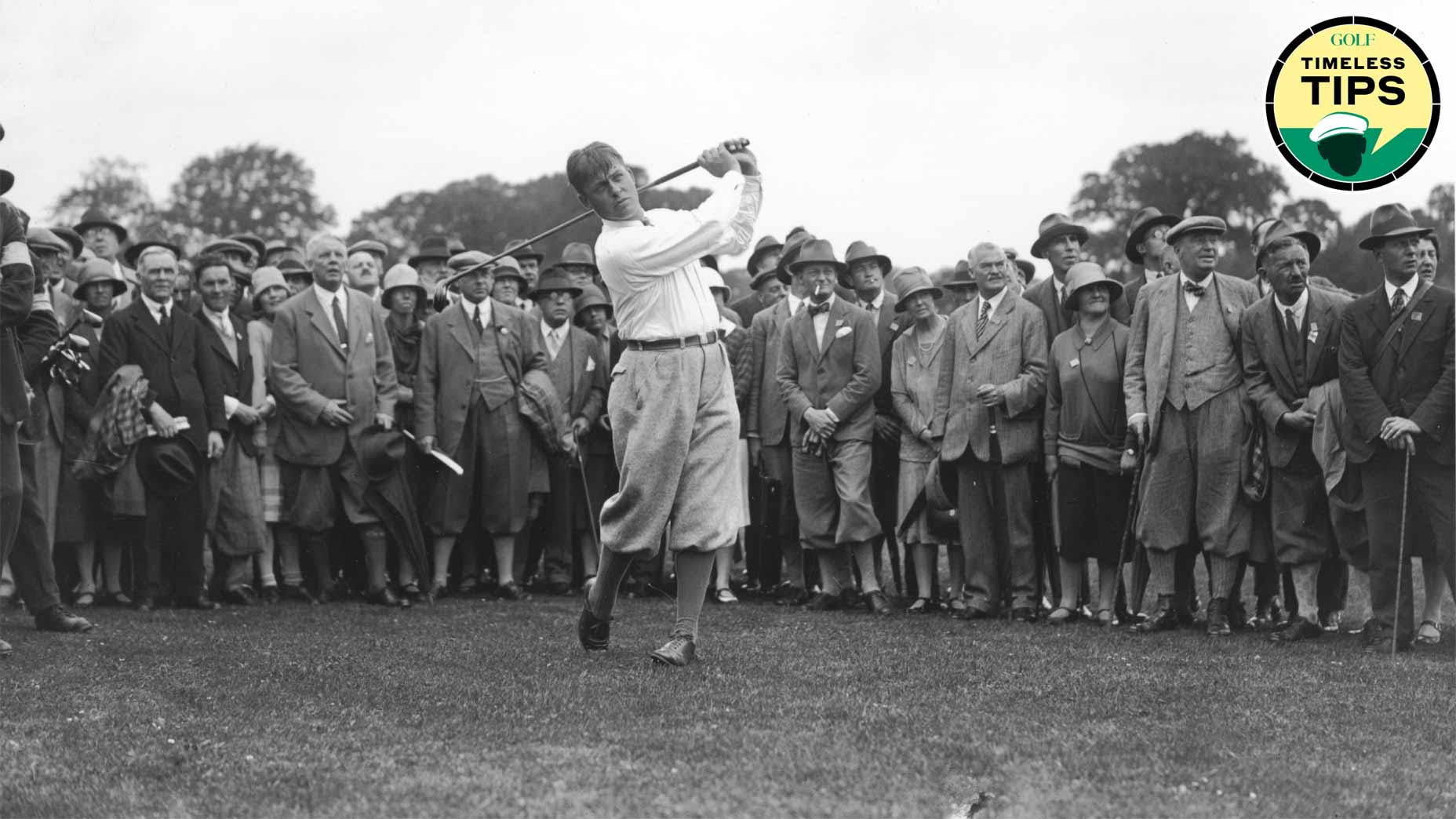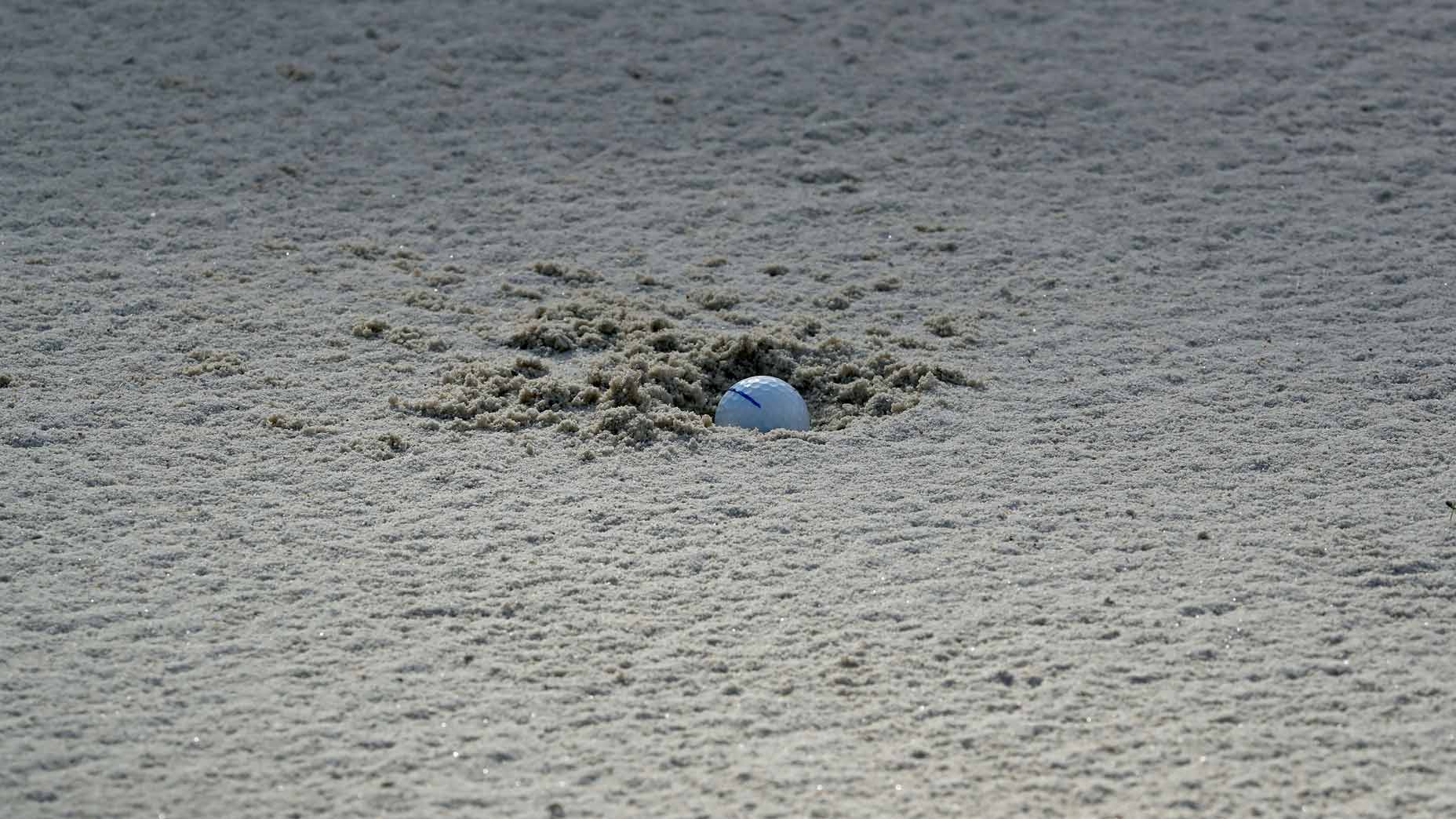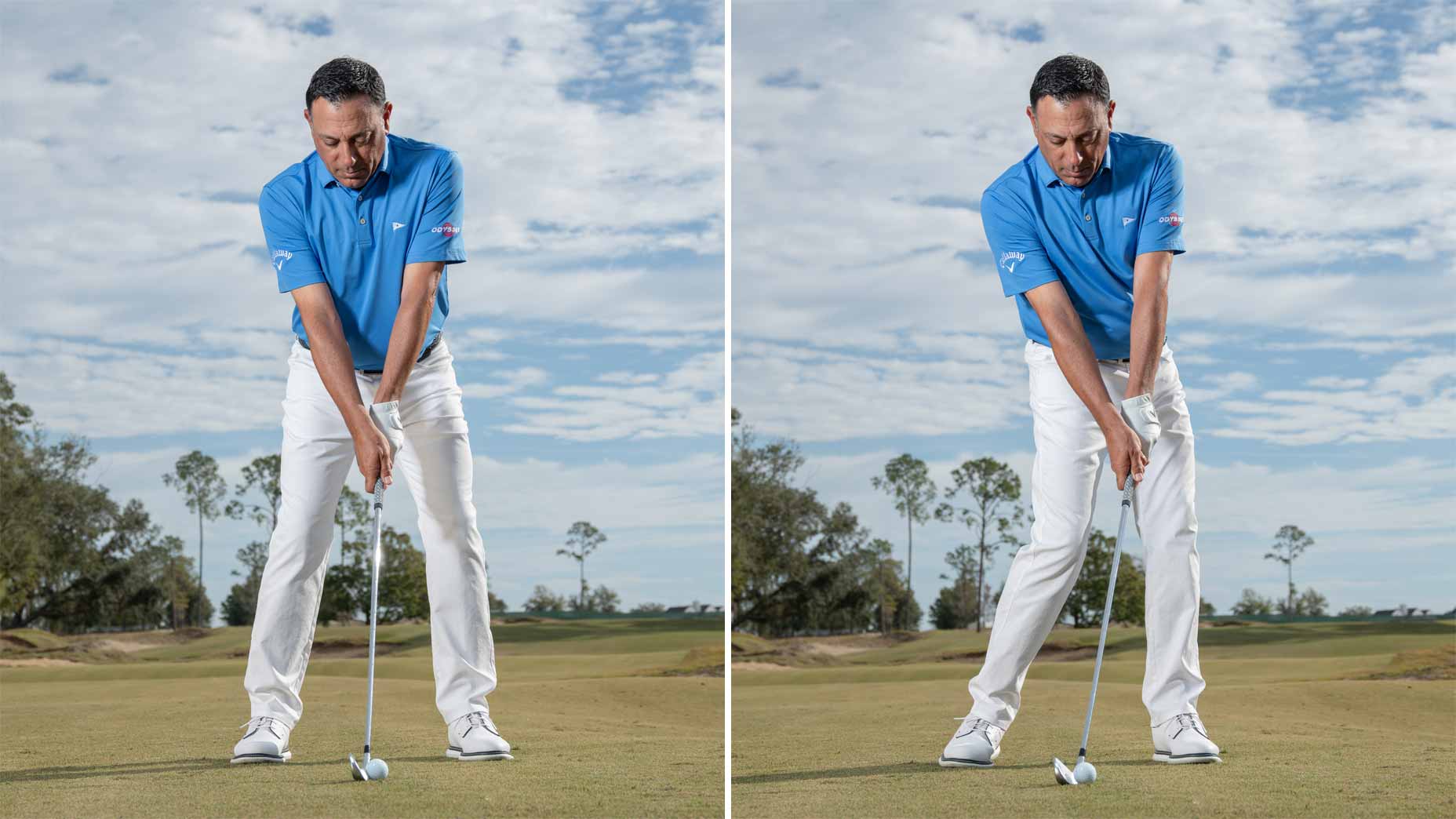When most golfers hear the word “chunk” on the golf course, they cringe. The last thing you want to do is chunk a shot, having the ball travel only a few feet and gaining an entire stroke in the process.
But not all chunks are created equally, so it’s time to get over the negative stigma that often comes with that word.
Need proof? Just listen to 2-time major champ and current LIV golfer Martin Kaymer in the video below (courtesy of LIV Golf’s YouTube channel), as the former No. 1-ranked player in the world shows you how to hit a “chunk and run” bunker shot with great success.
Martin Kaymer shows how to hit a ‘chunk and run’ bunker shot
What is a chunk and run bunker shot?
Before diving into Kaymer’s tips, it’s important to understand what a chunk-and-run bunker shot actually is. While it still requires great technique, it’s often the choice of pro players when playing a shot from a bunker that’s further away from the green — rather than a greenside bunker, which requires a high, spinny shot with an open clubface.
And by executing this nifty bunker shot, you’ll produce more topspin on the ball, allowing some room for error if you come up short so that the ball rolls towards the pin.
Kaymer’s tips for hitting a chunk and run
In the video above, Kaymer admits to getting joy in playing bunker shots.
“There are so many different ways of playing bunker shots, so I think it has always been one of my strengths,” Kaymer says. “The chunk and run is a very easy way of getting the ball out of the bunker because there’s so much margin [of error], so you don’t need to hit it perfectly.”
Kaymer then dives into his tips for hitting a chunk and run bunker shot.
“The goal is to pitch it just short of the green and let it release just like a putt [with added roll],” Kaymer explains. “The lie doesn’t really matter much because you take so much sand in front of the ball that the sand will carry the ball onto the green. So you don’t need to fly it there with a lot of spin. You can just chunk it and play it as a putt.”
Kaymer emphasizes hitting it fat, making sure you take a lot of sand. This probably goes against your instincts as a golfer, but it’s required in order to get the ball out of the bunker — while using enough club speed to produce the ball-flight you need.
“You really [need to] hit it fat with a lot of sand, and you need to avoid having any backspin,” he adds. “The ball position should stay pretty much the same, with it being middle towards my [lead] foot. And there’s no wrist hinge on the top [of the backswing], with the wrist position staying pretty neutral.
Kaymer then explains the biggest difference when hitting this shot versus other types of bunker shots.
“The biggest difference is that my left hand [for a right-handed player] tries to stay quite stiff. Because once you hit the ball in the bunker, you try to use the bounce [of the club], but I don’t really use it on this type of shot — with the firmer left wrist helping take away the spin,” he explains. “I try to hit the ball 2-to-3 inches behind it, which helps me to chunk it.”
Most wedges are more than useful to execute this kind of shot.
This technique makes one of the hardest shots in golf a breezeBy: Zephyr Melton
“You can take [almost] any wedge because you don’t need to worry about the spin, you just need to worry about how high [the ball] needs to come out,” he says. “If there’s a higher lip in front of you, maybe take a lob wedge. If there’s very little lip in front of you, you can take a gap wedge or even a pitching wedge — but you’ll need to open up the face a bit and aim a little bit left of the target [when using a pitching wedge].”
Finally, Kaymer says you should land your ball where you’d start your putt on the green, allowing the ball to roll on the putting surface towards the flag.
“You want to play this shot like a putt, so once it hits the green, you need to read the line as you would when putting,” he adds. “Where I would start my [putting] line is where my ball should land.”
So when you have some distance between a bunker and the putting surface, try using Kaymer’s tips above to execute a chunk and run. It takes some practice to get used to, but it can be an effective way to land your ball short and watch it roll on the putting surface to the pin.
